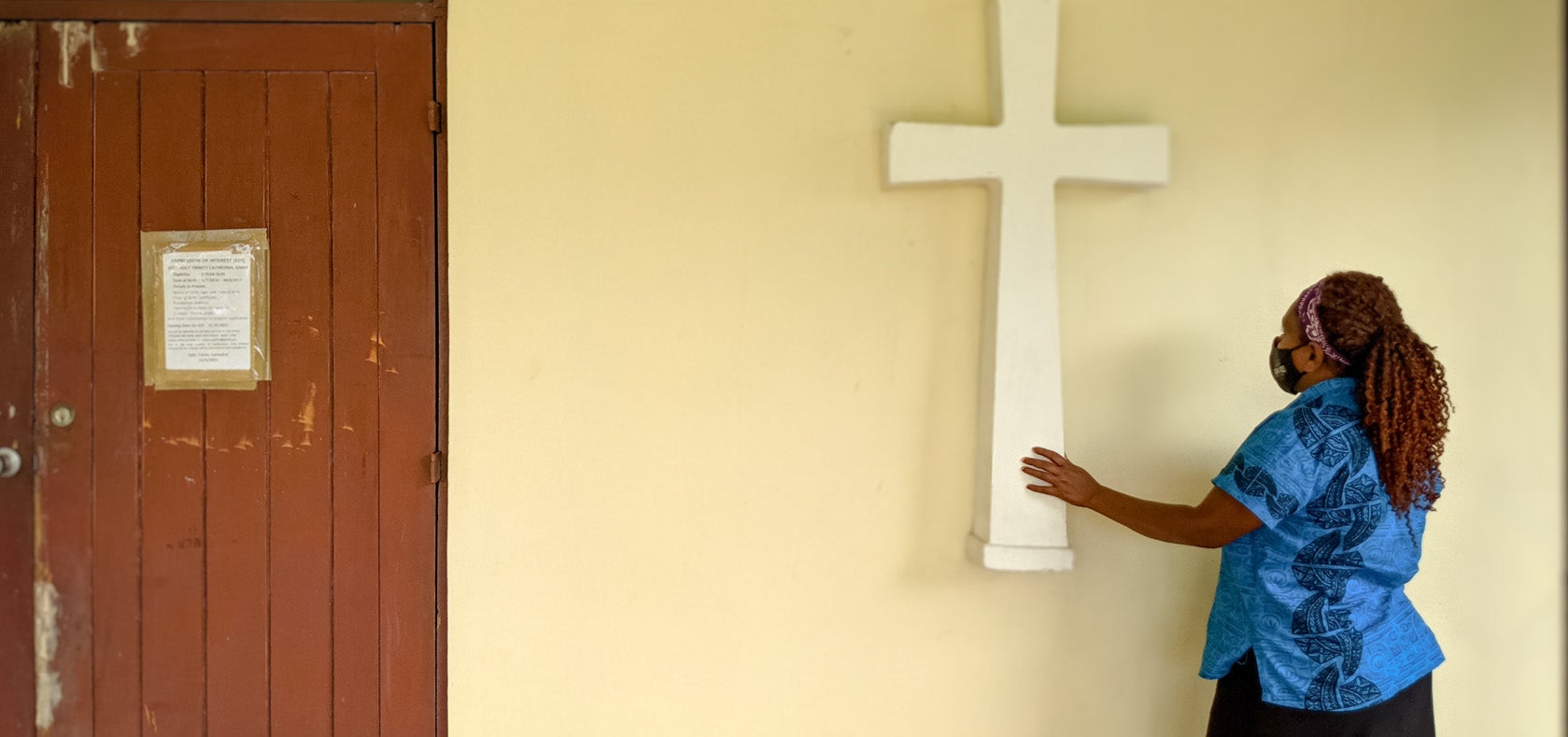In the words of a survivor who now helps other survivors: “After 19 years, I woke up. I stood on my own feet.”
Date:
Interviewed by Miho Watanabe

Since 2018, the faith-based non-governmental organization House of Sarah has been piloting the project, PreventingViolence Against Women in Fiji’s Faith Settings initiative in three Christian communities in Fiji. House ofSarah is co-funded by the Pacific Partnership to End Violence Against Women and Girls (Pacific Partnership), whichis funded primarily by the European Union, the Governments of Australia and of New Zealand, UN Women, and the FijiWomen’s Fund (also supported by the Australian Government). Through strategic partnerships with faith leaders,and those in the education, sport and employment sectors, UN Women has been working to prevent violence againstwomen and girls in Fiji.
Our interviewee is a member of Sarah Carer, social workers trained by House of Sarah to help survivors of violenceaccess information and essential services. She asked to remain anonymous.

For long, domestic violence was a norm in our community. Men would say it's a way of disciplining women.‘Mind your own business. It's their problem,’ people would say if anyone tried to help. …
I remember the day the church commissioned Sarah Carers. A pastor introduced me as a Sarah Carer providing servicesin our community. The news quickly spread across the community. The next day, everyone came to my doorstep. For thefirst time, women were empowered to take the first step to seek help. ...
Men are also changing—even my husband.
For 19 years, I lived in a frozen world. I didn't know what to do. The thought always came to me. What if I leavehim? For us, it's taboo for a woman to leave her husband and go back to her own family. It brings shame to theentire family. So, I bore the pain and all the abuse. I hid the bruises from my children. I didn't want them lookingat their dad as a bad person.
I thank God that the [House of Sarah] project was introduced in my community. I attended the training to become aSarah Carer. That really enlightened me. It empowered me. After 19 years, I woke up. I stood on my own feet. Thisneeded to stop. After I reported him to the police, I applied for a domestic violence restraining order. He spenttwo days in the cell before he was taken to court. That was his wake-up call.
He told me later that when he was growing up, his dad always threw cups and plates at his mum. She would go outsideand cry. Then she would always come back inside, and they lived happily together. He thought that was normal. Hedidn't know that his mum was hurting inside. When he realized that, he went back to his village and told her it wasnot normal. He went on to tell his extended families that it's not right to treat ladies like this. ‘I don'twant you to be like me,’ he told them.
At a funeral in his village, he brought all the men to cook the meals while the women prepared the table. Before, itwas all women doing everything. At home, he's been helping me with washing, cooking, cleaning the house, and takingthe children out. Before, I was the only one doing everything.
On last Valentine's Day, he gave me perfume. It was the first time he bought me a gift in our 21 years of marriagetogether. In the card, he wrote in Fijian, ‘Forgive me. I want to be a changed man. Will you give me a secondchance?’ I didn't show him that I was in tears.”